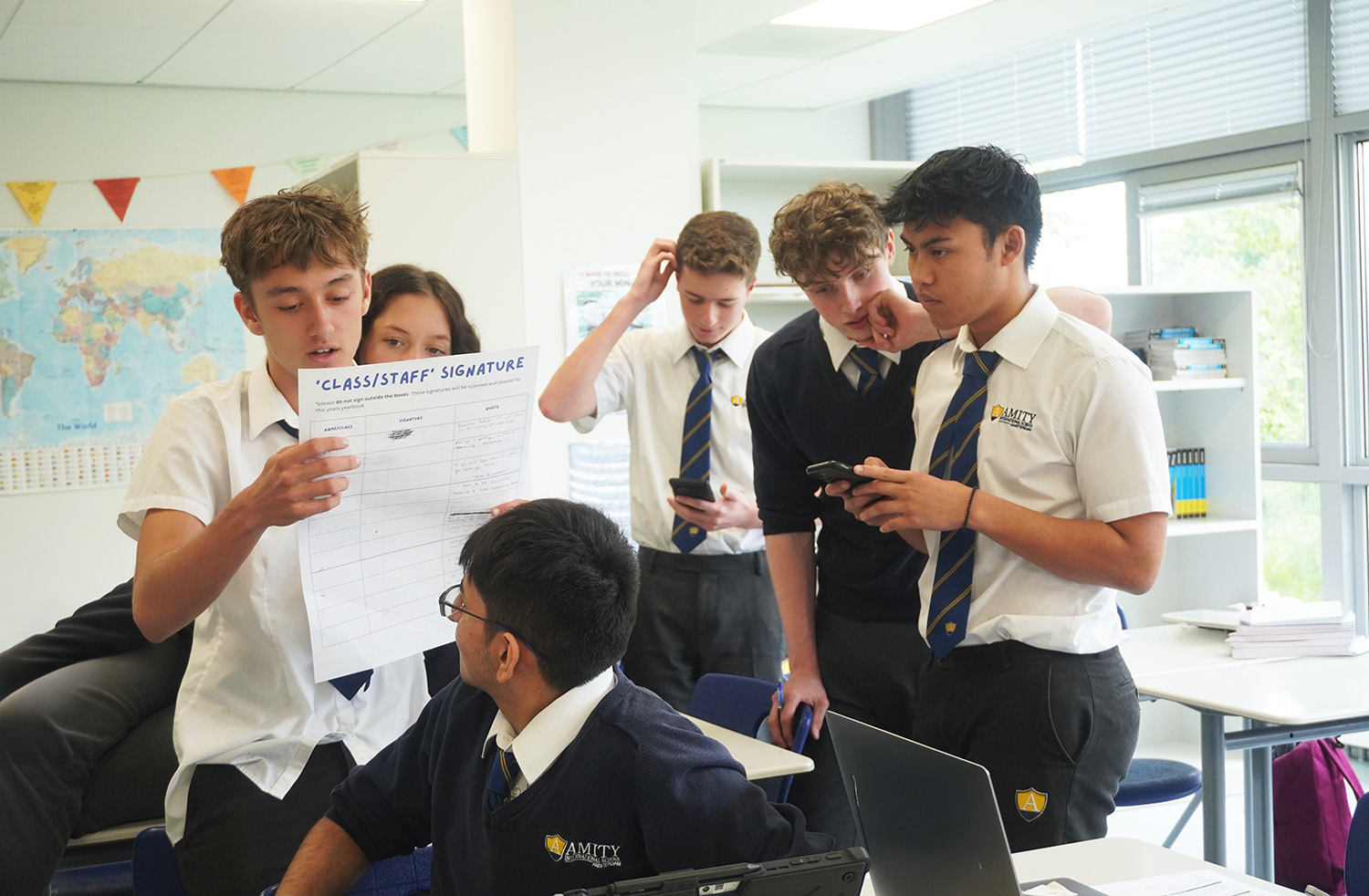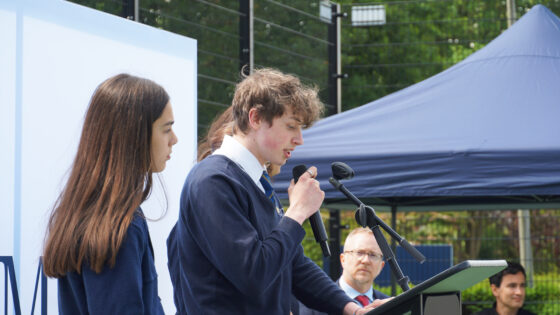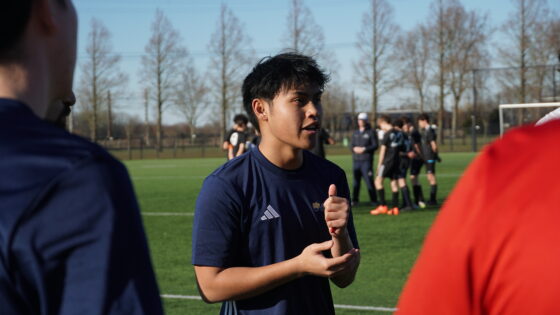Partner content
Introducing the school where students speak for themselves

At Amity International School Amsterdam, which has places for students aged 3-18 at its leafy Amstelveen site, the entire primary school is seated for an assembly on how their school is tackling the issue of waste disposal.
But if you’re picturing a teacher at the front, think again, because these student assistant heads confidently leading the assembly are just nine or 10 years old.
Communication skills
Involving students in the running of the school and activating student voice is central to Amity’s ethos, with self-management, communication and community action all embedded into the International Baccalaureate’s (IB) inquiry-based approach.
“Students are motivated by being involved and seeing a real change through their own initiative,” says Yair (17), chair of Amity’s Student Council. Describing himself as a child who was once “timid”, he’s surprised by the responsibility he’s felt able to take on. “As I’ve grown with the school, I’ve grown in my communication skills,” he says.
Recent Student Council initiatives include the donation of Valentine’s Day baskets − containing essential supplies and cards with kind messages − to people in need; and the introduction of a vending machine of healthy snacks to provide more food options at school.

Any student can email the council with their ideas or speak to the student representatives, who are elected, following hustings, in each senior-school tutor group. “A lot of schools have a hierarchy between the younger years and the seniors, but at the Student Council, there’s absolutely none of that,” Yair adds. “The atmosphere is very friendly and open.”
Making a difference
Dagny (10) and Hena (9), who led the assembly on litter, have not only raised awareness, but also created a plan of action. “We found a solution to make a club here at Amity,” Dagny shares. “We pick up trash around school … and make art out of it.”
Navy is just 8 years old, but, inspired by a library book, launched a poster campaign to recruit litter-pickers who now meet every Wednesday. “It’s making a difference,” says Philip Antcliffe, coordinator of the Primary Years Programme. “We’ve a much tidier school now because the children feel responsible for their learning space.”
Middle Years Programme coordinator Jonathan Lapinskas oversees the senior school house captains (aged 11 to 18), who also help steer school life. “Every Monday, we’ll meet to discuss and plan out the student-led events for the year,” he says. “The best thing about it is that I am merely a facilitator; it is the students who have agency over the process.”
House captain Jade, is only 11 but she already does playground duties and helps with the Early Years children. Together with her peers, she recently organised a quiz to raise money for the World Wildlife Fund, the children’s chosen charity, and she helps lead House assemblies on subjects selected by the students to “raise awareness about the worries they are having”.
Though Jade is still in Primary School, she has a strong sense that her voice counts. “I feel, not only respected, but that people are listening,” she says.
Empowering students
As well as quizzes, the senior school house captains recently organised an inter-house football tournament and a potted sports day called “the Mini Olympics” – all agreed on following a school-wide student survey.
“This is the first school I’ve ever worked at where the students really feel that they can make a positive difference,” says Jonathan. “We empower and guide them, but it’s the students themselves who take on the responsibility of creating and organising these events. It’s been really successful.”

The skills of “planning, organisation and critical thinking” are all nurtured by giving students more power, says Yair, who, as sports liaison captain and coach, has played an important role in the school’s extra-curricular provision.
“A lot of the students may participate in different clubs and activities, but they never really think about how important it is to plan, let’s say a football lesson, or to plan the logistics for the sustainability team to remove [single-use] cups,” he explains. “But once they are actually part of it, they get to learn the skills that are needed to handle such a big task, and also teamworking and communicating because we can’t make these changes alone.”
Building confidence
The IB learner profile, a list of attributes developed within the curriculum to shape students for success, includes “risk-taking” and “being principled”. Letting go a little has been crucial for the school to create strong independent thinkers, but it does sometimes require a leap of faith.
Recently, a proposal for tutor groups to be rewarded with a non-uniform day if they have two weeks of perfect uniform garnered enough signatures to make its way to the Principal’s desk. It was a bold pitch on the part of the students, but through a process of dialogue and negotiation, a win-win agreement was reached, and students and staff now pull together to keep uniform standards high.
“You have students as young as 12 who feel extremely confident pitching their ideas about school-wide changes to the principal, which is quite unheard of,” says Jonathan. He puts some of this self-confidence down to the IB curriculum, where oral skills are highly valued. “There is a lot of focus on presentations and group work,” he explains. “Students get used to speaking in front of people and using their skills of self-management to prepare something they can present to the class.”
With the students at Amity International School Amsterdam coming from all around the world, it’s no surprise that they bring a wealth of different ideas and perspectives. “This is a place where you are free to be who you are, and where you are heard,” stresses Judith Meijer from the school’s business team. “These are the children who are going to lead in the future, so we need to listen to them.”
To find out more about Amity International School Amsterdam, visit their website or contact the admissions office to schedule a private tour.
Thank you for donating to DutchNews.nl.
We could not provide the Dutch News service, and keep it free of charge, without the generous support of our readers. Your donations allow us to report on issues you tell us matter, and provide you with a summary of the most important Dutch news each day.
Make a donation